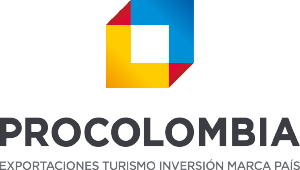PRODUCT DEVELOPMENT.
After amassing critical experience, skills, capital, and connections abroad, certain firms are now tapping into Colombia’s unique demography and topography to launch some of the industry’s most promising products
What is your overall strategy?
DIEGO FELIPE NAVARRO We are part of a larger group called Folium Global and started operating in the US two years ago with licenses granted by the government of Nevada. Our business model is in accordance with Nevada law, and we are allowed to cultivate plants, manufacture products, and sell these to end consumers within the dispensary network. Our focus in the US is mainly within the state of Nevada. With FoliuMed, however, we are now approaching the international market. In Colombia, we are focusing our first phase on B2B operations. This involves mainly ingredients for the pharma and the health and wellness industry. We have some LOIs signed with some Canadian corporations, including Medisun and Veritas Pharma, who are willing to purchase part of our local production in Colombia. We are focusing on selling B2B products first, mainly concentrates, isolates with different combinations of cannabidiol (CBD) and tetrahydrocannabinol (THC); however, this first phase will focus mostly on the hemp business. This means our business in Colombia will focus on non-psychoactive strains in the beginning, considering the large and growing market in the United States and EU. We are particularly excited about the new 2018 farm bill, approved by the US Congress and signed by President Trump, which means we will be able to target our products across the entire US. While we are enthusiastic about the LOIs already signed, we are exploring opportunities with other Canadian firms and EU companies, mainly in Germany.
GILBERTO IRRAGORI 2018 was an extremely exciting year. We have been structuring the entire company, putting together our business plan, and setting up the most important thing: our social program. We have a huge social program with farmers in Valle del Cauca and had to bring together universities and hospitals and prepare the agreements. We have also been looking for for the best people and bringing them into the company. 2018 was a year of structuring and putting things together. In this part of the world, a farmer with a one acre plot of land typically grows coffee and his family’s daily food, while a section of the plot remains empty. The farmers earn low amounts from growing coffee, and our plan involves taking that unused portion of land and growing CBD plants. We prepare the farmers, give them all the knowledge they need, help them with the nutrients, and give them the genetics. We have agronomists who visit them every 10 days to oversee cultivation. The farmers then bring their crop to Mandara, and we refine it into oils.
What is your competitive advantage?
DFN We have a unique competitive advantage compared to other firms starting operations in Colombia. Our cultivation, manufacturing, extraction, and end-consumer product development are all strengthened by our track record and positioning in the US. In terms of cultivation, we have experience with different strains with great quality and yields. All of our technical procedures focused on cultivation have been strengthened by our operations in Las Vegas. Regarding the extraction lab, we have a manufacturing and extraction facility in Las Vegas where we manufacture disposable and rechargeable vape pens, our main focus in the US. Meanwhile, our Roots brand vape pen was voted the best-selling one out of more than 700 brands in 12 US states by Leaflink, the leading cannabis digital marketplace publication. We are interested in manufacturing similar vape pens in Colombia and are confident can take our knowledge, expertise, and experience in Nevada to do so.
GI We will launch a variety of cosmetic products in 2019, including essential oils from cannabinoids and THC. Colombia has 44% of the quota of the world’s medical cannabis, which is massive, and Valle del Cauca’s location makes it the perfect place to grow CBD. ZOMAC zones are key, as there many advantages tax-wise. In the first five years, there is 50% tax reduction and then 25% tax reduction for the following five. Aside from cosmetics products and essential oils, we are also looking at industrial hemp. Many things can be produced from this, such as construction materials, biomass, and biodiesel. We are also looking into putting together food for cats, dogs, and horses. We have put together a team of experts, including graduates from Harvard and Cornell, in animal nutrition and plan to launch a pet food product in 2019. There are also many food products such as hemp seed oil, for example, which has been sold in the US for many years and is a huge source of protein and Omega 3.



